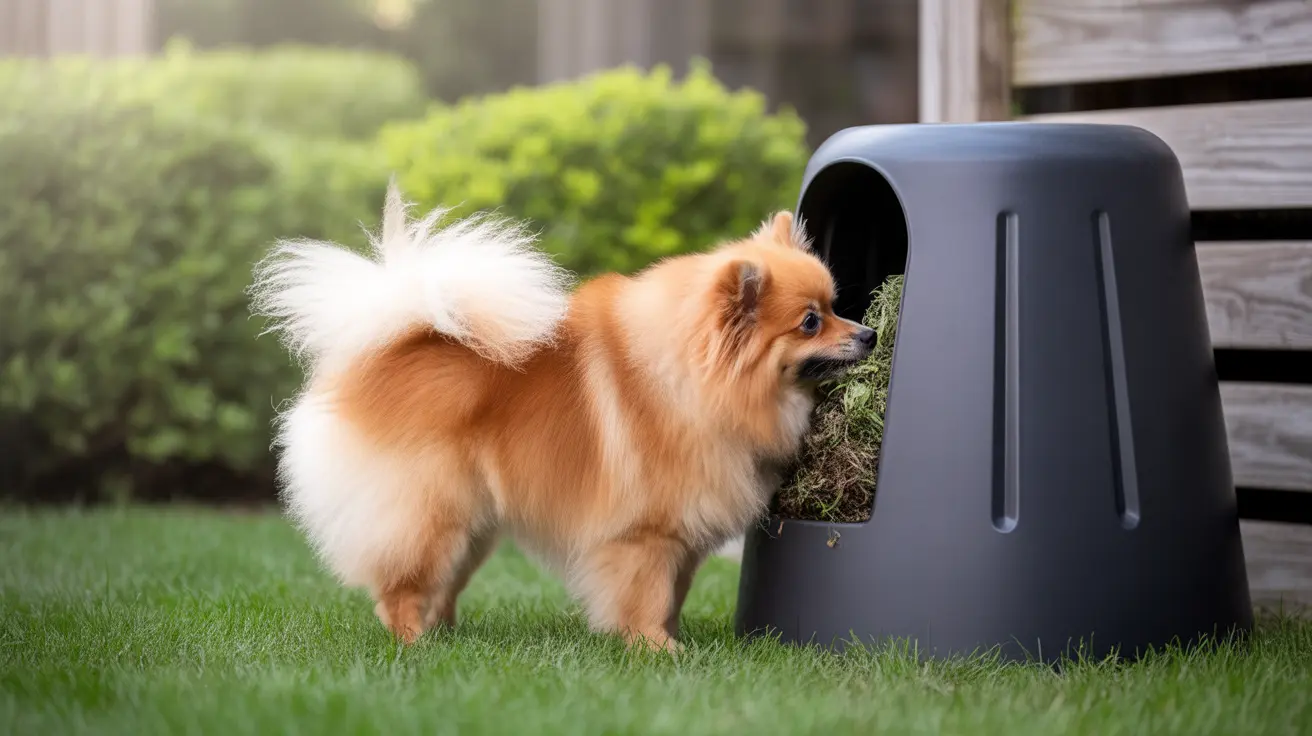Many gardeners seeking natural fertilizer options might wonder about using dog waste in their gardens. After all, manure from other animals like horses and cows is commonly used to enrich soil. However, the reality about using dog poop as fertilizer comes with serious warnings that every gardener needs to understand.
In this comprehensive guide, we'll explore why dog waste should not be used as fertilizer, the potential health and environmental risks it poses, and what safer alternatives you can use instead.
The Dangers of Using Dog Waste as Fertilizer
Unlike herbivore manure, dog feces present significant health hazards that make it unsuitable for garden use. Dogs' carnivorous diets create waste that's highly acidic and loaded with harmful pathogens. A single gram of dog feces contains approximately 23 million coliform bacteria, which can cause severe illness in humans.
The Environmental Protection Agency (EPA) classifies dog waste as an environmental pollutant, placing it in the same category as toxic chemicals and pesticides. This classification exists for good reason - dog waste can contaminate soil, water sources, and pose serious health risks to humans and pets alike.
Health Risks and Pathogens in Dog Waste
Dog feces harbor numerous dangerous organisms that can survive in soil for extended periods:
- Roundworm eggs that can migrate to human organs
- E. coli bacteria causing severe intestinal illness
- Salmonella leading to food poisoning symptoms
- Parasites that can create life-threatening cysts
- Various harmful bacteria causing kidney disorders
Children are particularly vulnerable to these health risks, as they often play in gardens and may accidentally ingest contaminated soil or touch their mouths with dirty hands.
Environmental Impact of Dog Waste
The environmental consequences of using dog waste in gardens extend beyond immediate health concerns:
- Creates toxic soil conditions due to high acidity
- Damages and kills grass and other plants
- Pollutes waterways similar to mining runoff
- Produces strong, unpleasant odors that worsen over time
- Disrupts natural soil nutrient balance
Safe Alternatives for Garden Fertilization
Instead of using dog waste, consider these effective and safe fertilization methods:
- Commercial organic fertilizers
- Properly composted plant materials
- Horse or cow manure from reliable sources
- Professional-grade compost products
- Natural mineral fertilizers
Proper Dog Waste Management
To safely handle dog waste, consider these approved disposal methods:
- Use specialized pet waste composters
- Employ professional waste disposal services
- Utilize flushable dog waste bags
- Double-bag and dispose in household trash
- Install an underground pet waste digester
Frequently Asked Questions
Can dog poop be used as a safe fertilizer for my garden?
No, dog poop should never be used as fertilizer due to dangerous pathogens, parasites, and bacteria that can cause serious illness in humans. Unlike herbivore manure, dog waste is classified as an environmental pollutant by the EPA.
Why is dog waste considered a pollutant, and how does it affect the environment?
Dog waste is considered a pollutant because it contains harmful bacteria, creates nutrient imbalances in soil, and can contaminate waterways. Its high acidity can damage plants and grass, while its pathogens pose risks to environmental and human health.
How can I safely compost dog poop to minimize health risks?
While possible, composting dog poop requires specialized equipment and precise conditions to kill pathogens. Never use dog waste compost on edible plants. Commercial pet waste composters or professional services are recommended for safe disposal.
What are the best alternatives to using dog poop as fertilizer in my garden?
The best alternatives include commercial organic fertilizers, properly composted plant materials, herbivore manure (from horses or cows), and professional-grade compost products. These options provide nutrients without the health risks associated with dog waste.
How can I prevent the spread of diseases from dog waste in my yard and to my family?
Regular waste cleanup, proper disposal methods, and thorough hand washing are essential. Use designated tools for waste removal, maintain regular veterinary care for your dog, and keep children away from areas where dogs defecate.
By understanding the risks associated with dog waste and following proper disposal guidelines, you can maintain a healthy garden while protecting your family and the environment. Remember to always choose safe, proven fertilization methods for your gardening needs.






